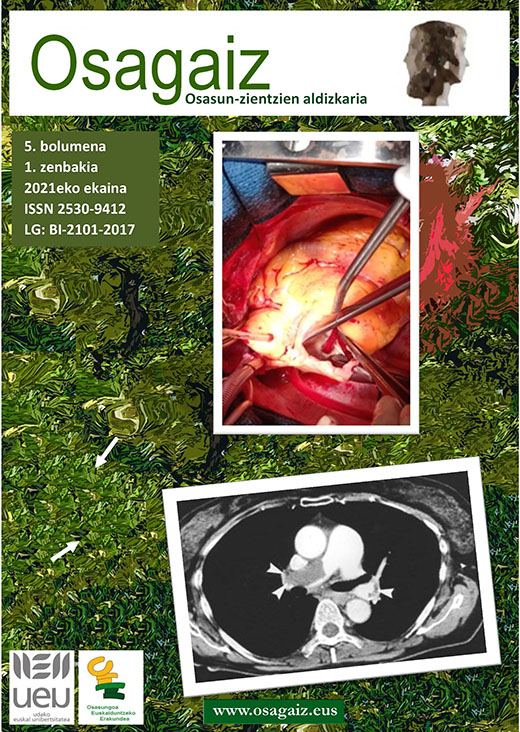Laburpena
Botulismoa Clostridium botulinum bakterioak sortzen duen neurotoxinak eragindako gaixotasuna da. Lotura neuromuskularretan eragiten duenez, oso larria izatera irits daitekeen sindrome klinikoa eragin dezake, arnas muskuluen paralisia eragiteraino. Kutsatzeko erarik ohikoena, elikagai bidezkoa da, agerraldi epidemiologiko gehienak elikagaiak prestatzeko metodo desegokiekin erlazionatuta egonda. Horregatik, nahitaezkoa da kasu susmagarri guztiak garaiz identifikatzea horien aurrean neurriak sasoiz hartu ahal izateko.
Donostia Unibertsitate Ospitaleko Larrialdi Zerbitzura botulismoaren susmo klinikoa zuen 23 urteko emakumea bertaratu zen, etxean egindako hegaluze-kontserba kontsumitu ondoren; azkenik Neurologiako zerbitzuan ingresatuta geratu zen. Diagnostikoa egiteko beharrezkoa da lagin kliniko batean edo elikagai susmagarriaren lagin batean toxina botulinikoa detektatzea. Era berean, kutsatuta dagoen elikagaiaren identifikazioa egitea garrantzitsua da, horrela pertsona gehiagoren kutsatzeak saihestu ahal izateko. Hori dela eta, botulismoa, osasun publikoko emergentzia eta berehala jakinarazi behar den aitortu beharreko gaixotasuna da.

